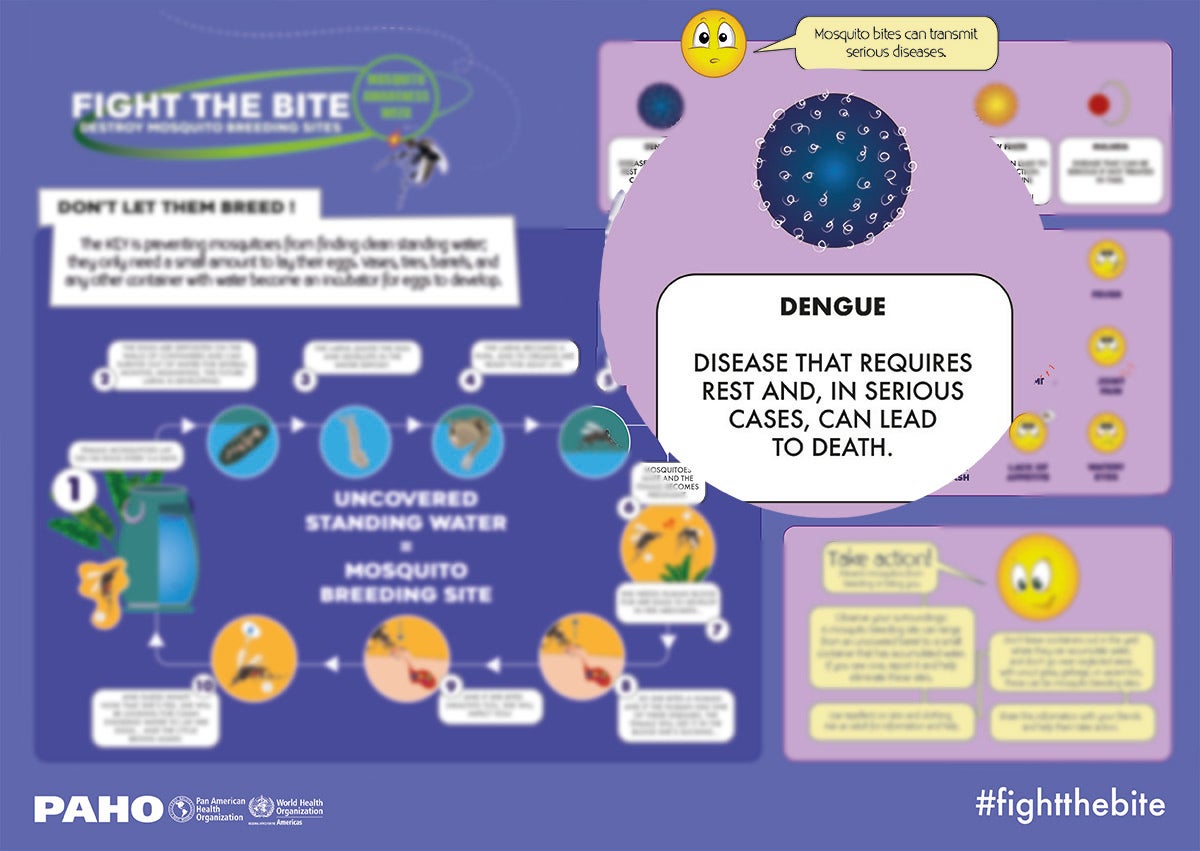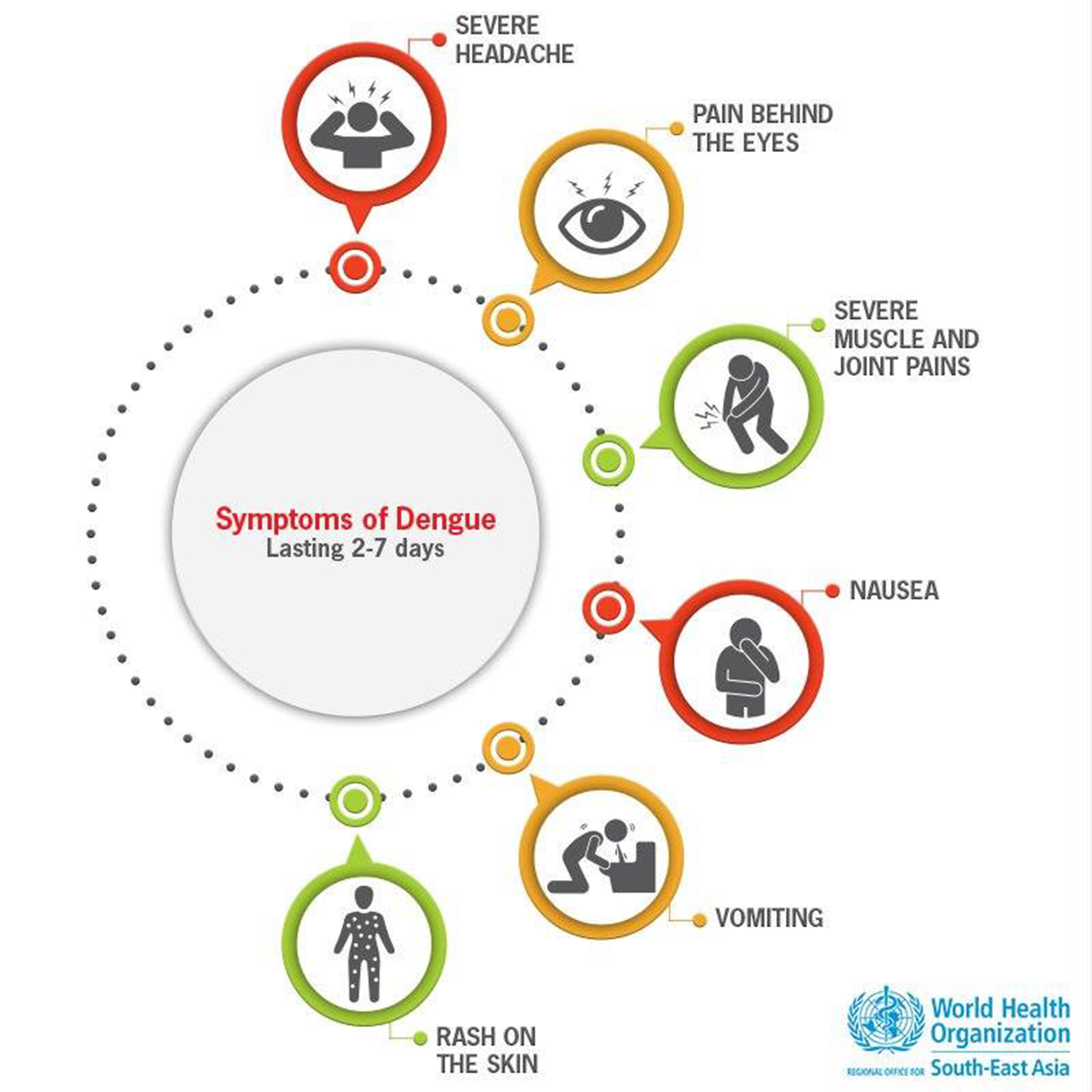
What is dengue?
Dengue is a mosquito-borne infectious disease caused by the dengue virus (DENV). Because the infection may be asymptomatic or present itself with a broad range of symptoms (both severe and non-severe) such as flu-like, it continues to remain a public health problem globally especially in the Americas.
Even in Belize?
Yes, so far, for the year of 2019, Belize has had a total of 3,675 dengue cases (Click here) throughout the entire country.
How is dengue transmitted?
Dengue is transmitted by mosquitoes. There is a mosquito called Aedes aegypti that lives in and near our homes and reproduces in any artificial or natural container holding water. Aedes aegypti is known as a vector because it carries diseases and the diseases are referred to as vector-borne diseases. It poses the greatest risk for the transmission of dengue because the mosquitoes need standing water to lay their eggs so the eggs can develop into mosquitoes.
The female Aedes aegypti is responsible for transmission of the dengue virus. It needs the human blood, mainly for the development of its eggs and for its regular metabolism. The dengue virus is acquired by the mosquito when it feeds on the blood of an infected person. After virus incubation of eight to ten days, an infected mosquito is capable, during biting and blood feeding, of transmitting the virus for the rest of its life or about 4-6 weeks.
After feeding, the Aedes aegypti mosquito lays its eggs every 3-4 days in still water, ensuring that some of its offspring will survive and making mosquitoes more difficult to control.
How do I know if I have dengue?
Dengue is a flu-like illness. Symptoms such as fever, muscle and joint pain, headache, chills, fatigue and weakness, congestion or sore throat may arise.
How do I know I have severe dengue?
If three to seven days after experiencing the first flu-like symptoms and once the fever subsided, if you encounter more severe symptoms such as bleeding gums, blood in vomit, abdominal pain or any of the other symptoms in the image, it is time to seek immediate hospital care.
Remember, it is important to avoid taking aspirin and ibuprofen.
What can you do? - Vector Control
Aedes aegypti prefers to lay its eggs in artificial recipients that contain water such as drums, barrels, and tires, located in and around houses, schools, workplaces and in public and/or private places.
Efforts to physically control the mosquito’s breeding sites are the most effective, having the greatest impact on vector populations.
The elimination of mosquito breeding sites should be a responsibility shared by everyone – the authorities, public sector, private sector, NGOs, families, and individuals –– not just the Ministry of Health or the Vector Control agencies.
To eliminate mosquitoes the following actions are recommended:
- Avoid the collection of water in outdoor containers (pots, bottles, or other containers that can collect water) so that they do not become breeding sites for mosquitoes;
- Keep tanks and water storage areas covered to keep out mosquitoes;
- Avoid storing trash, throw trash in closed plastic bags, and place in closed containers; and unclog drains that may leave standing water.
Apart from physically controlling and eliminating the mosquito breeding sites, it is important to prevent mosquitos from biting you and transmitting the disease.
- Wear long sleeves to minimize skin exposure.
- Use repellants on skin and clothing.
- Avoid places with standing water.
- Install screens in doors and windows.
- Sleep under mosquito nets.
Did you know?
Considering the hours when the vector is most active, it is recommended that actions aimed at controlling adult mosquitoes outside the home should be carried out in the morning and evening. Therefore, the Ministry’s vector control teams around the country use spray trucks out around these times. But it is essential that people/families keep their doors and windows open to allow the insecticide into their homes.
When insecticides are applied in homes by health professionals or others, it is important that kitchen utensils and food and water for human and animal consumption are well covered or kept in closed places. It is also necessary for residents to leave during the treatment and to keep the home closed for at least 20 minutes after fumigation to ensure that the mosquitoes have been killed.
And remember, it is important to minimize contact between the vector and patients infected with dengue. This helps to prevent the spread of the virus and the disease. Patients suspected of having dengue should rest under mosquito nets, as long as they remain sick.






